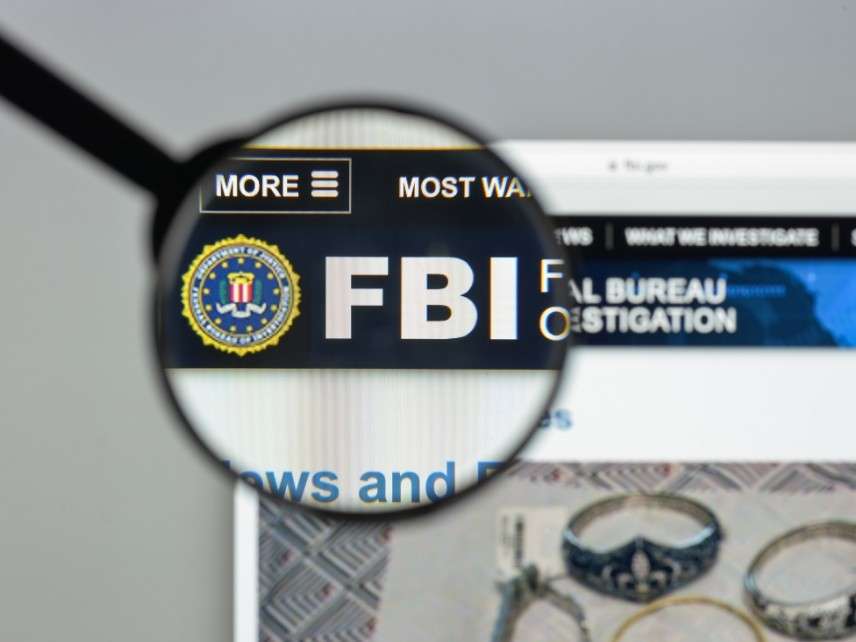The FBI Won't Say if It Spies on Your Social Media Posts. Cue the Lawsuit!
"We shouldn't have to think about self-censoring what we say online."

It's not really a secret that the FBI is in the business of monitoring social media posts. What's less clear is why, after the American Civil Liberties Union (ACLU) asked for records related to that surveillance, the bureau refused to acknowledge their existence. That's just one question a lawsuit filed yesterday by the ACLU and its Northern California affiliate seeks to answer.
Last May, the ACLU filed Freedom of Information Act (FOIA) requests with seven government agencies "seeking the release of records pertaining to the federal government's social media surveillance," according to the lawsuit. It's been nearly eight months since then, and not one of those agencies has complied. The resulting lawsuit seeks "to enforce the public's right about the Defendant federal agencies' surveillance of social media and speech."
"Little information is available to the public on the tools and methods Defendants use to conduct surveillance of social media users and speech, or any policies and guidelines that govern such surveillance," says the suit, filed in the U.S. District Court for the Northern District of California-Oakland Division. "The public interest in the release of these records is clear. Because the government's growing use of social media surveillance implicates the online speech of millions of social media users, U.S. citizens and residents of all backgrounds have an urgent need to understand the exact nature, extent, and consequences of that surveillance."
Various federal agencies do have a documented history of monitoring people's social media activity. In some cases, they haven't been particularly secretive about it.
Consider the FBI. Back in 2012, the bureau published a request for information as part of an effort to enlist contractors to help build a social media monitoring system. In 2016, Vice reported that the FBI was using a tool called SocioSpyder to monitor sites like Facebook, Twitter, and YouTube for "incriminating data." And as the Electronic Privacy Information Center (EPIC) noted last June, the FBI is believed to have utilized the contractor Dataminr "to monitor in real-time more than 500 million daily tweets."
Yet the bureau responded to the ACLU's FOIA request by saying it "could neither confirm nor deny the existence of records responsive to your request."
The ACLU is also suing the departments of Justice, State, and Homeland Security, as well as three agencies under the DHS umbrella: Customs and Border Protection, Immigration and Customs Enforcement, and Citizenship and Immigration Services.
Of particular issue to the ACLU are the government's alleged efforts to more closely monitor immigrants' social media profiles. The defendants "have ramped up the monitoring and retention of immigrants' and visa applicants social media information, including for the purpose of conducting what the Trump administration has called 'extreme vetting' or 'visa lifecycle vetting,'" the suit reads.
For instance, EPIC points out that the State Department has been asking visa applicants to disclose their social media handles. The DHS, meanwhile, said in September 2017 that it wanted to "expand the categories of records" for all immigrants "to include…social media handles, aliases, associated identifiable information, and search results."
"There's a growing trend at the Department of Homeland Security to be snooping on the social media of immigrants and foreigners and we think it's an invasion of privacy and deters freedom of speech," Adam Schwartz, an attorney with the Electronic Frontier Foundation, told BuzzFeed News at the time.
The ACLU suit asks the court to search for and release all records related to the defendants' social media monitoring. "It's unacceptable for the government to withhold details about this domestic spying," ACLU attorneys Hugh Handeyside and Matt Cagle write in a blog post about the suit. "The public needs to know how the government is watching us—and we shouldn't have to think about self-censoring what we say online."


Show Comments (22)